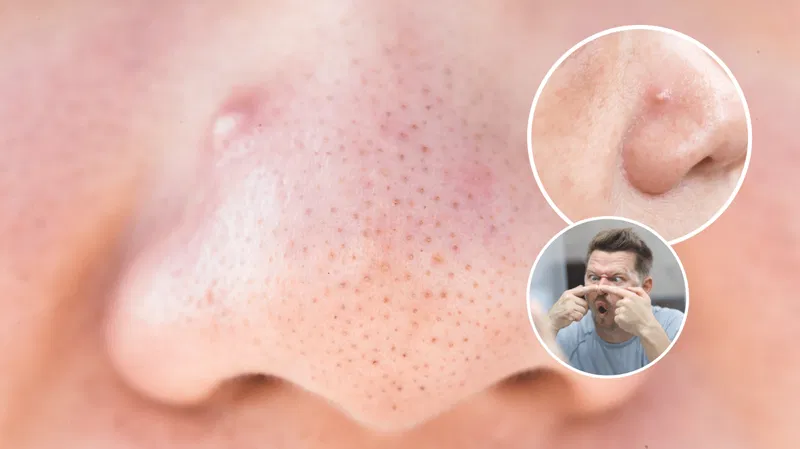The human tongue is an incredible organ, often overlooked but constantly at work. From helping us articulate speech to savoring the complex flavors of our favorite dishes, this muscular marvel plays a vital role in our daily lives. But how much do you really know about your tongue? Prepare to be amazed by these fun and fascinating facts that will make you appreciate this small yet mighty muscle even more.
The Tongue Is a Powerhouse of Muscles
At first glance, the tongue may seem like a simple organ, but it’s anything but! The human tongue is composed of eight interwoven muscles, which work together to allow for its impressive range of motion. Unlike other muscles in your body that are attached to bones at both ends, the tongue is what’s known as a muscular hydrostat—similar to an octopus tentacle. This unique structure enables it to move in virtually every direction, making it one of the most flexible parts of your body.
The tongue’s muscle fibers can contract in various patterns, which allows for incredibly precise movements. This is why you can roll your tongue, touch your nose with it (if you’re one of the few who can), and perform countless other feats of dexterity. This muscle coordination is crucial for tasks such as chewing, swallowing, and speaking, proving that the tongue is indeed a powerhouse of muscles.
Your Tongue Never Stops Working
Did you know that your tongue is one of the hardest-working organs in your body? Even when you’re sleeping, your tongue is still active, pushing saliva into your throat to help keep your mouth moist and prevent you from choking. This constant activity is vital for maintaining oral health, as it helps to remove food particles and bacteria from your teeth and gums.
Moreover, your tongue plays an essential role in breathing. It helps to keep the airway open, ensuring that you can breathe properly while you sleep. People who suffer from sleep apnea often have issues related to the tongue blocking their airway, highlighting just how crucial this organ is for your overall well-being. So, the next time you drift off to sleep, remember that your tongue is tirelessly working to keep you safe and healthy.
A Unique Tongue Print: Your Tongue’s Fingerprint
Just like fingerprints, everyone’s tongue print is unique. The combination of grooves, ridges, and texture on your tongue creates a pattern that is distinctly yours. In fact, biometric security experts are even exploring the possibility of using tongue prints as a form of identification in the future. This might sound far-fetched, but it’s based on solid science—the chances of two people having identical tongue prints are incredibly slim.
The uniqueness of your tongue also extends to its appearance. The size, shape, and even the color of your tongue can vary significantly from person to person. Some people have a “geographic tongue,” where the surface of the tongue has map-like patterns due to varying textures. Others might have a condition known as “fissured tongue,” characterized by deep grooves that run across the surface. These variations are usually harmless and simply add to the fascinating diversity of human anatomy.
The Tongue: Your Flavor Interpreter
Taste buds are probably the first thing that comes to mind when you think about the tongue. These tiny sensory organs are responsible for detecting the five basic tastes: sweet, sour, salty, bitter, and umami. But did you know that your tongue is home to approximately 10,000 taste buds, and each of these buds contains 50 to 150 taste receptor cells? These cells send signals to your brain, allowing you to experience the flavors of the foods and drinks you consume.
Interestingly, your sense of taste is more complex than you might think. While your tongue plays a crucial role, your sense of smell also significantly contributes to the flavors you perceive. This is why food often tastes bland when you have a cold—your nasal passages are blocked, reducing your ability to detect aromas. The tongue and nose work together in harmony to create the full spectrum of flavors that make eating such an enjoyable experience.
Tongue Health: A Window to Your Overall Health
Your tongue can tell you a lot about your overall health. For example, a healthy tongue is typically pink and covered with a thin white coating. However, changes in the color, texture, or appearance of your tongue can indicate underlying health issues. A bright red tongue might suggest a vitamin deficiency, such as a lack of B12 or folic acid. On the other hand, a pale or white tongue could be a sign of anemia or oral thrush, a yeast infection.
In addition to its color, the texture of your tongue can also provide clues about your health. A smooth tongue might indicate a deficiency in nutrients like iron, while a tongue with bumps or sores could be a sign of irritation or infection. Regular tongue checks can help you catch potential health problems early, making it an important part of your overall health routine.
The Tongue: A Tool for Expression
Beyond its functional roles in eating and speaking, the tongue is also a powerful tool for non-verbal communication. Sticking out your tongue can convey a range of emotions, from playfulness to defiance, depending on the context. In many cultures, the act of showing one’s tongue has various symbolic meanings, from a greeting to a sign of respect or challenge.
The tongue’s role in speech is also fascinating. It helps to form sounds and articulate words by interacting with the teeth, palate, and lips. Without the tongue, many sounds we take for granted—like the “t,” “d,” and “l” sounds—would be impossible to produce. This makes the tongue not only a physical tool but also an essential part of how we express ourselves and connect with others.
Conclusion: The Tongue’s Incredible Versatility
From its unique muscle structure to its critical role in taste and speech, the tongue is an organ that deserves far more recognition than it typically receives. Whether it’s tirelessly working while you sleep or helping you enjoy your favorite meal, the tongue is always on duty. Its ability to convey emotion, provide insights into your health, and uniquely identify you makes it one of the most fascinating parts of the human body. So the next time you savor a delicious dish or articulate your thoughts with clarity, take a moment to appreciate the remarkable muscle that makes it all possible.







